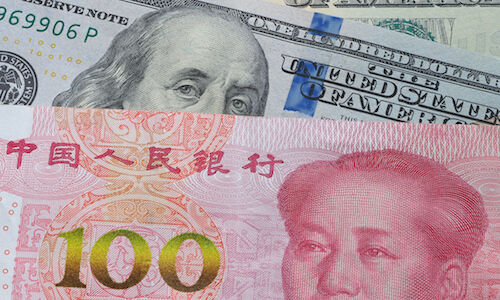BOCI on U.S. Sanction Risks: Don't Use SWIFT
China’s former foreign exchange regulator urged banks to cut reliance on the west’s global payment system, SWIFT, in preparation for looming U.S. sanctions.
A report by Bank of China International (BOCI) called for the greater use of China’s Cross-Border Interbank Payment System (CIPS) instead of the Belgium-based Society for Worldwide Interbank Financial Telecommunication (SWIFT) system as U.S.-China relations rapidly worsen. The recommendation for a switch is not only due to the risk of a sudden loss of SWIFT access but also to reduce exposure of China’s global payments data to the U.S.
«A good punch to the enemy will save yourself from hundreds of punches from your enemies,» said the report, according to «Reuters», which was co-authored by Guan Tao BOCI chief economist and former director at State Administration of Foreign Exchange's (SAFE) international payments department. «We need to get prepared in advance, mentally and practically.»
CIPS was launched in 2015 as part of broader efforts to internationalize the yuan and according to China’s central bank, the clearing and settlement system processed the equivalent of $19.4 billion a day in 2019 based on transactions from 96 countries and regions.
Financial Warfare
In addition to a payment system switch, the report also underlined various other measures to counter existing and potential moves from Washington.
They include considerations to halt the usage of U.S. dollars as the anchor currency for foreign exchange controls and the development of legislation, similar to the EU’s Blocking Statute, to allow trading and economic relations with Iran which is facing U.S. sanctions.
The legal recommendation coincides with the ongoing legal battle against Huawei and its chief financial officer Meng Wanzhou over allegations that it misled banks, including HSBC, to take risks and break U.S. sanctions against Iran. In the latest development, Huawei lawyers not only claimed that HSBC had knowledge of its dealings with the Iranian entity in question but suggested that the British lender deliberately exposed the Chinese tech firm to U.S. sanction risks.






















